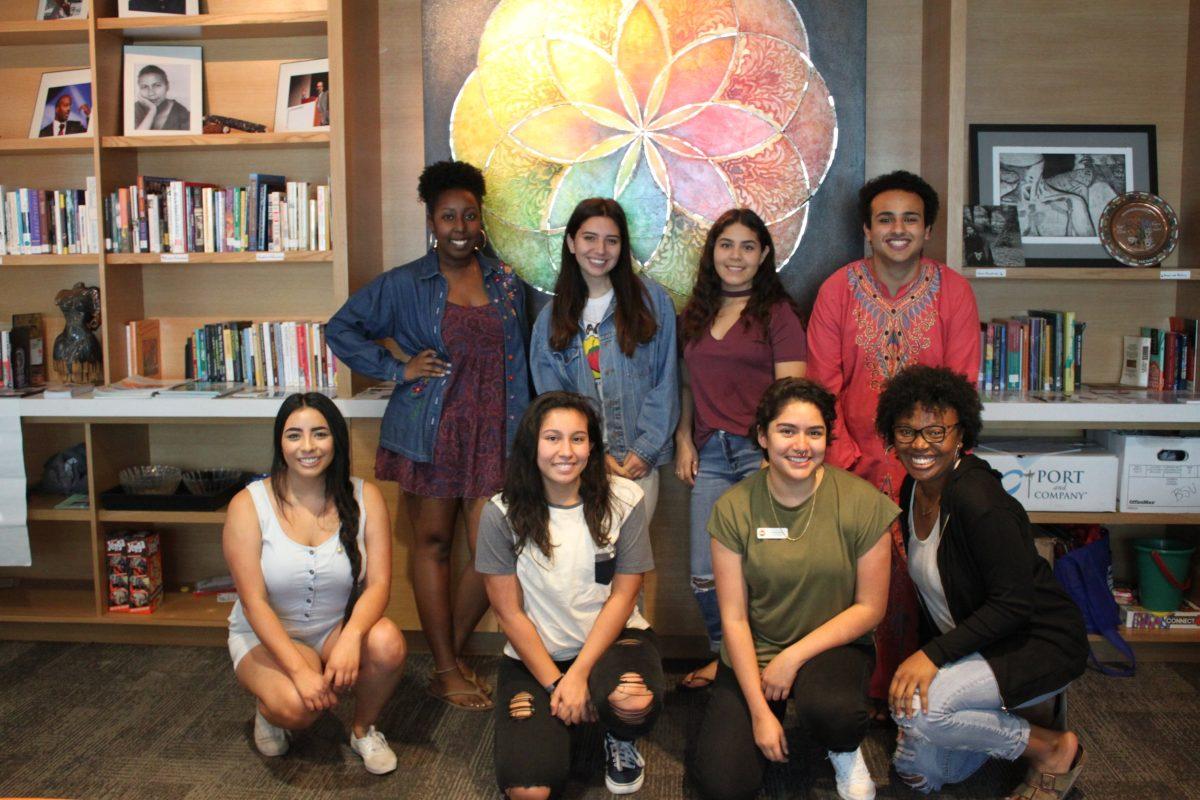The Women of Color Collective is a unique outlet for female students of color at Sonoma State University.
Every week, its members come together to discuss current issues that concern them and to share personal struggles with peers from similar backgrounds.
Carina Buzo, HUB program coordinator and former Sonoma State student, organizes the weekly collective meetings alongside Isabel Avila Saiter, staff psychologist at Counseling and Psychological Services. Meetings are held every Wednesday at noon in the HUB.
“I think a lot of the women who come don’t have other spaces where their feelings are validated,” Buzo said. “The Women of Color Collective says you’re not the only one and your womanhood, femininity or connection to this space is valid here.”
Buzo describes the collective as not only a space that validates member experiences, but also as a place of learning.
“What it has done for me is affirm my understanding of teaching,” Buzo said. “That education and teaching can happen sitting in a circle over snacks, sharing things, crying, and that can be teaching and learning too.”
There is no planning when it comes to the weekly meetings, according to Buzo.
Each collective meeting starts off by allowing each member to introduce themselves and to share their thoughts or feelings. The rest of the meeting focuses on newly developed topics, usually ones without previous planning.
Buzo said she and Avila are always keeping a list of women of color staff and faculty on campus.
The two coordinators reach out to everyone on this list at the beginning of each semester, inviting them all to a collective meeting to share their experience with the group.
This process only occurs three times per semester to ensure the integrity of the group and to make sure that the students have a safe and comfortable space to share.
Shatearra “Cookie” Garrett, the Beaujolais Village area coordinator, also serves as a mentor for the collective.
“The reality is that people of these intersectional identities need a place to connect with other people that can identify with their struggles and where they can be encouraged and supported,” Garrett said. “There is also a need from those of us that have been oppressed and suppressed in different ways in our society, historically, to have an avenue of empowerment, which is what the WOCC [offers] for many of the participants.”
Andrea Hernandez, a senior geography major and student programer for the HUB, said this is the first semester that she has attended the collective, as well as her first semester working for the HUB.
“It really is a place of welcoming,” Hernandez said. “All your identities will be acknowledged as well as anything that you are feeling.”
Hernandez said one of the best parts about being part of the collective is the ability to identify with other women who are often experiencing similar struggles.
“I’ve always found solidarity in coming here just because all of your experiences are acknowledged, and you understand you’re not alone,” Hernandez said. “There is definitely, I believe, power in identity and similar identities when you’re all in one place.”
“Despite all that we face, women of color continue to not only survive but grow and thrive in an environment where we aren’t always respected,” Garrett said. “Having that much [resilience] and courage in one room is truly powerful.”



































